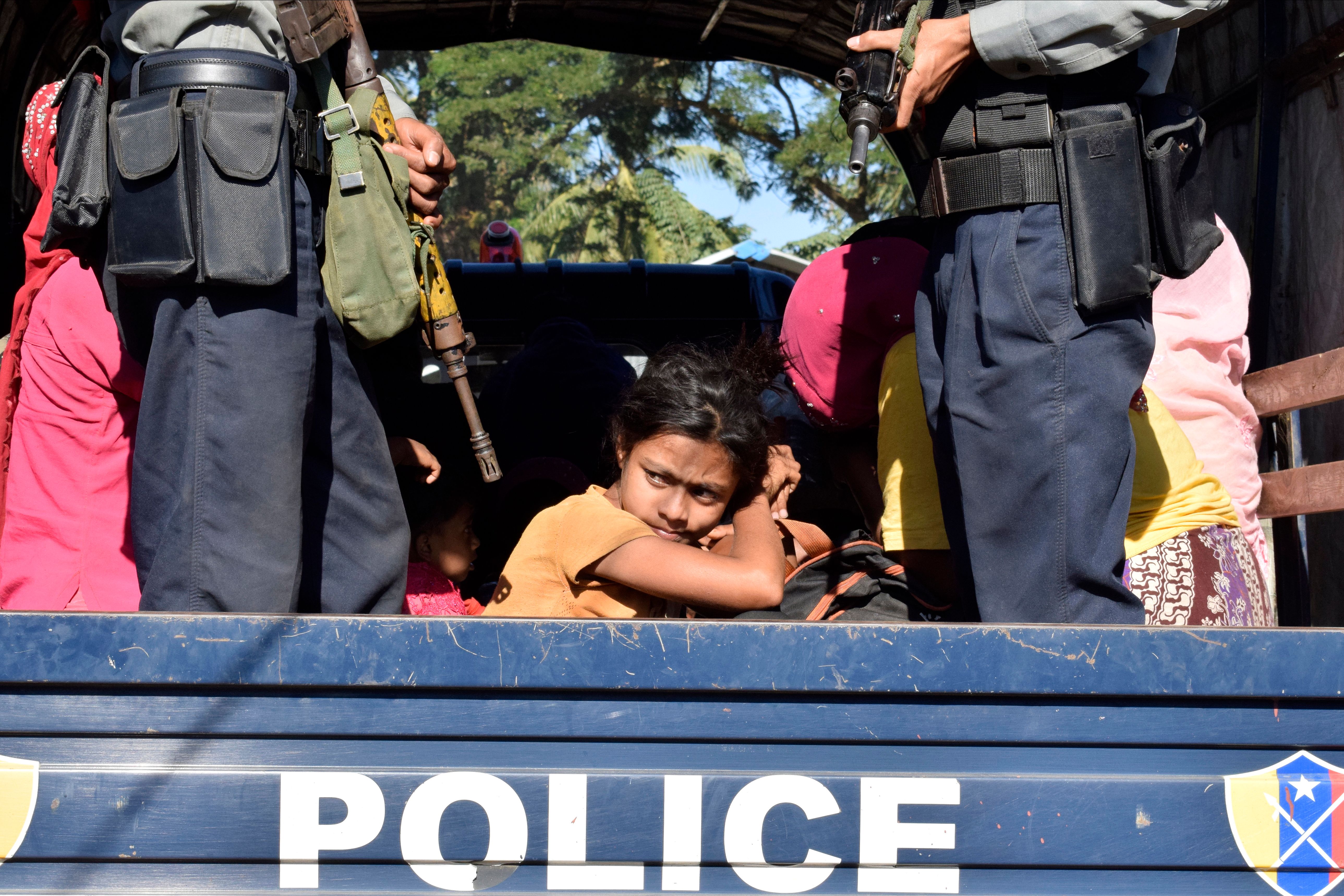
It’s 2019 and the world feels like it’s on fire. From the Trump White House to Brexit to a 24-hour news cycle obsessed with tragedy, people are very aware of the pain around them. Add in the instant access to information from around the world via the internet and it can get overwhelming. We know more about the world than ever before. And all of that begs a big question: As travelers, where do our responsibilities lie when visiting countries clearly committing horrible acts?
Some background: A few weeks ago, I heard that Jack Dorsey of Twitter went to Myanmar on vacation. A practitioner of Vipassana meditation, he tweeted about the SE Asian nation and challenged intrepid travelers to visit. Immediately, alarm bells went off in my head. Right now, Myanmar is killing its most vulnerable citizens over their preferred religion. It’s classed by the UN as an “ongoing genocide.” Dorsey’s travels seemed like some sort of implicit acceptance of that. Especially because of his celebrity.
But there was a second set of bells that chimed as I discussed the issue with fellow Uproxx travel writers. The hypocrite bells. I’ve been to Myanmar (it’s the country I feel most guilty about visiting). I’ve also traveled to other countries committing war crimes. So the idea of me passing judgment on someone’s hard-earned vacation seemed suspect from the gate.
Still, this case seemed different to me. Is there ever a government action that can go “beyond the pale” so drastically that refusing to travel there is a moral imperative? I think so.
And if you’re willing to travel a bit, go to Myanmar: https://t.co/9qKm78uq7o
— jack (@jack) December 9, 2018
If you dig into the links below, you’ll discover that what’s happening in Myanmar isn’t a fringe group of extremist a la ISIS or the Taliban trying to force their fundamentalist views on an entire country via warfare and terror. This is the government of Myanmar using social media outlets, government services, and military to commit mass rape, murder, and dispossession of a million of their own people who happen to be Muslim instead of Buddhist.
To be clear: We do not use the term “genocide” lightly here. Policy groups, news organizations, the United States State Department, and even the United Nations have all come to the same conclusion and branded this event as a genocide being carried out by the government of Myanmar. 900,000 people have been forced to flee their homes. At least another 150,000 are in concentration camps. And tens of thousands have been murdered and are still missing after Myanmar’s government launched their “Clearance Operation” in summer 2017. That’s before we even get to the evidence of organized mass rape being carried out by the military. Moreover, this atrocity is, as mentioned, on-going and likely going to get a lot bloodier this year as hundreds of thousands of refugees are forced to return to Myanmar.
So, when Dorsey coyly tweeted, “and if you’re willing to travel a bit, go to Myanmar,” it felt deeply wrong. Dorsey’s 4.1 million followers received a message that it’s okay to travel to a country that’s openly raping and murdering children with their military.
Naturally, I wasn’t the only person who was bothered. There was an immediate backlash to Dorsey’s tweet calling him everything from insensitive to out-of-touch (and more that doesn’t need repeating here). Was the Twitter-verse right in dragging Dorsey for this?

Here’s the thing: To enter Myanmar as a tourist, you have to pay the government $59 for a tourist visa or sneak in (when I visited, I snuck across the border by bribing a friendly immigration agent at a deep jungle outpost). That money probably seems like a nominal fee. It’s not. Four tourist’s visas equal two-hundred bucks and change. That amount of cash can buy about 1,000 rounds of AK-47 shells (at retail). If you wanted to really break it down, that $59 Dorsey gave to the Myanmar government to go and meditate could easily have been spent on 500 bullets that all evidence indicates will be used on fleeing men, women, and children.
This might sound like I’m overreaching. I get it. But money funneled into a government openly committing acts of genocide is still money into their coffers. It 100 percent means that they are more capable to carry out those acts when you’re literally giving them cash. Maybe Dorsey’s visa fees didn’t go to buying bullets directly. Maybe it went to boots or rations for the military or the cleaning staff of a general or… The point is, that money went to the government. And it’s more than just visa fees. If you ride the rails in Myanmar, you’re paying a state-owned rail company. In fact, most of Myanmar’s services (which are crucial to everything in the country) are state-owned. So there’s very little way not to support the local regime at literally every turn.
The kicker: A quarter of Myanmar’s national annual budget goes to the military.
Dorsey replied to the criticism he received by deflecting. “I don’t view visiting, practicing, or talking with the people, as endorsement,” the CEO tweeted. As always there’s some truth here and some (perhaps willful) ignorance. Can we really say that giving money to a government committing genocide isn’t an endorsement? We vote with our dollars from the grocery store to every government we chose to travel to when we pay for entrance or exit visas/taxes for their trains, hotels, and agriculture.
Is giving the Myanmar government your tourist dollars a vote of endorsement? Let’s answer that question with a question: Would you have gone to Munich for Oktoberfest in ’42?
I’m aware of the human rights atrocities and suffering in Myanmar. I don’t view visiting, practicing, or talking with the people, as endorsement. I didn’t intend to diminish by not raising the issue, but could have acknowledged that I don’t know enough and need to learn more.
— jack (@jack) December 11, 2018
It’s 2019, pleading ignorance and claiming that spending money in a country that’s clearly committing atrocities against its citizens is not an endorsement is no longer going to fly. By going to countries that are committing these acts and literally putting money in those government’s hands, you are — at least to some degree — endorsing those actions. It can be accidental. It can be passive. It doesn’t make you a criminal. But… it’s not great.
You might slant this scenario to ask: Where does it end? There are lots of governments committing human rights violations. Do we have to plan every backpacking trip with help from Amnesty International?
No. But we do have to be honest and ask ourselves if putting money into the hands of people in those places help the oppressed or the oppressors. Can we connect with and support the right people in places like Myanmar? Or are we just telling ourselves that in a desperate attempt to justify our actions? My opinion: In a country like Myanmar — where everything from a bowl of noodles to a train ride has the military’s beak dipped in — it’s tough.
Of course, if we’re going to look at every country in the world and judge whether or not they deserve our tourist dollars or to be shunned, things get squirrelly very fast. What does that mean in Europe where fascism is on the rise at an alarming pace from Poland to Austria and beyond? What about Dar Es Salaam, Tanzania, where a local politician has started using social media to round up homosexuals, neighborhood by neighborhood? What about Brazil where a dictator was just elected on the promise of literally committing genocide against the Indigenous population? Then there’s China where Muslims are being put into “re-education” camps by the millions in the western reaches of the country. The list goes on and on and on.
So where do we draw lines? Is it right to skip Tanzania because one state and one politician are running a democide against the gay community? No. Situations like that one or the rise of fascism in Poland (of all places) are not national policy (yet). These are places with a vast variation in political ideology and culture. People are fighting these groups right now. Visiting the Serengeti is not the same as visiting Dar Es Salaam even though they’re in the same country. We have to be able to be nuanced and recognize when a whole country is committing atrocities and when a region, state, or even fringe group are.
I learned in places like Afghanistan and the Democratic Republic of Congo that the world isn’t a monolith. While one group carries out an atrocity in one corner of the country another corner of that country is likely completely inoculated from that violence — and likely working very hard to stop it. It’s weird and hard to get your head around. Even in Syria as some cities were being bombed into oblivion, there were still cocktail bars operating in Damascus and the tourism industry was in full swing. The world is a messy place full of contradictions and hard choices.
We also have to ask “when do we turn our criticism back on ourselves?” Where are our lines? Is it really any better to go to Texas or Arizona where our border patrol is committing crimes against humanity? Kids are dying on our borders and not because of a war or conflict, simply because Americans can’t decide on what the word “asylum” means. But does that mean, I can’t travel to Alaska or other parts of the U.S.? That line is much harder to define. Sometimes wrestling with it is half the battle. It makes us more awake to injustice and more invested in the fight.
Still, when it comes to Dorsey, Myanmar has moved past fringe radicals attacking groups and set out to institutionally commit genocide. That’s an easier line than most. Don’t give money to governments openly committing genocide. Give money to people resisting or suffering, for sure. Help where you can with charities or refugee centers. But, right now, that means not going to a place like Myanmar, at least not via official channels.
Jack Dorsey’s $59 visa fee and the cash he spent in-country could have gone to a refugee center in Bangladesh. Instead, it went to the people creating those refugees. It’s a big, scary, messy thought to suggest he shouldn’t have gone — but it’s a thought that he, and we, ought to wrestle with.






